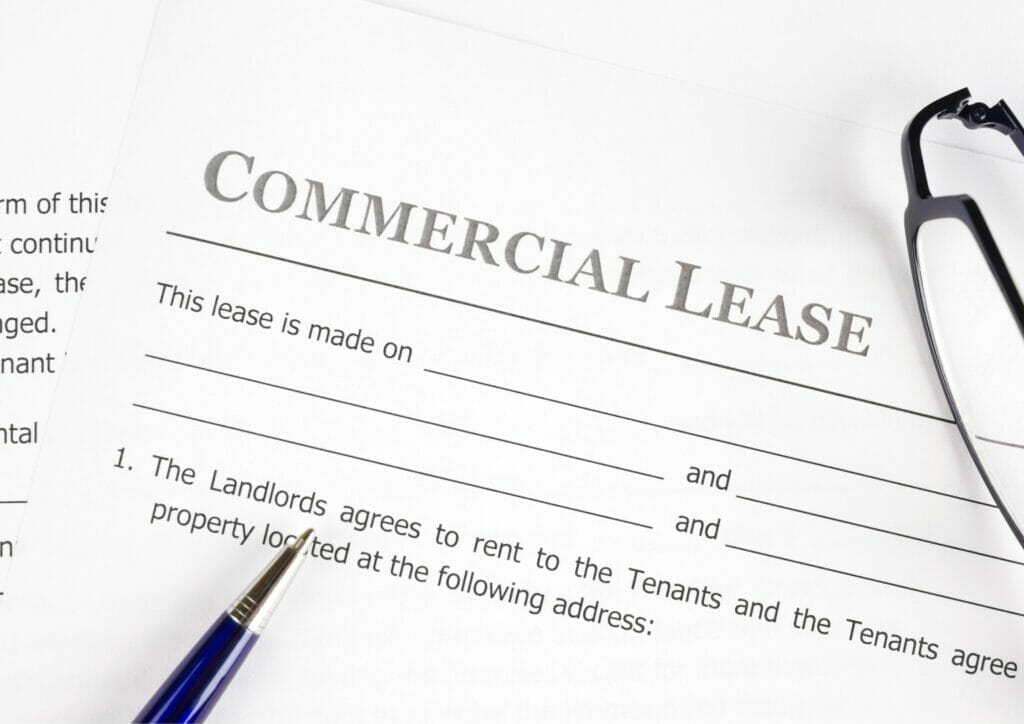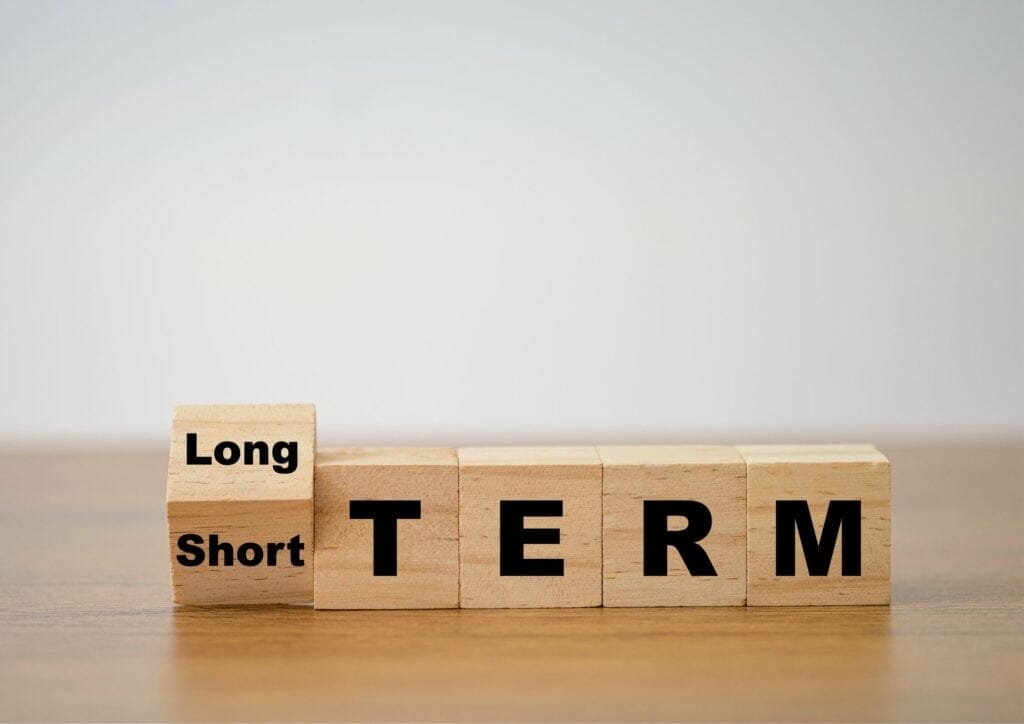
7 Great Tips for Negotiating a Commercial Lease
Are you in the market to renew your current lease or seeking a new commercial space? If so, you’ll want to read this blog post! Here we will give you 7 tips for negotiating a commercial lease.
A commercial property lease can be tricky, but with these tips, you’ll be able to get the best deal possible for your business. So what are you waiting for? Read on and start negotiating!

Table of Contents
What is a Commercial Lease?
A commercial lease is a contract between a landlord and tenant for commercial property use. The tenant pays rent to the landlord in exchange for the property’s right to use.
Commercial leases are typically longer and more complex than a residential lease, and contain a slew of provisions within the lease that require review by an experienced attorney before signing.
Commercial Leases vs. Residential Leases
When it comes to leasing property, there are a few key differences between commercial and residential leases:
- Commercial leases are generally longer than residential leases, with terms typically lasting anywhere from one to ten years and in some instances, will include legalese around an option to renew for a period of time.
- Commercial leases often involve larger-scale properties, such as office buildings or retail spaces. As a result, they tend to be more expensive than residential leases.
- Commercial leases often contain clauses that allow the tenant to make changes to the property, such as subleasing or renovating.
Types of Commercial Leases
There are five main types of commercial leases:
Gross Leases:
The tenant pays a fixed monthly rent, and the landlord covers the property’s operating expenses, such as taxes, insurance, and repairs.
Net Leases:
The tenant pays a base rent plus a portion of the property’s operating expenses. There are three subcategories of net leases:
Single Net Leases:
The tenant pays base rent plus property taxes.
Double Net Leases:
The tenant pays base rent plus property taxes and insurance.
Triple Net Leases:
The tenant pays base rent plus property taxes, insurance, and repairs.
Modified Gross Leases:
The tenant pays a fixed monthly rent, and the landlord pays some of the property’s operating expenses. The exact mix of expenses covered by the landlord vs. tenant will be detailed in the lease agreement.

What Should be Included When Negotiating a Commercial Lease Agreement?
When negotiating a commercial lease agreement, it should include the following key components:
- The names of the landlord and tenant
- The property’s address
- The length of the lease term
- The rental amount and payment schedule
- A description of the property’s allowed use
- Provisions for renewals and options to purchase
- A dollar amount for tenant improvements ($/SF)
- Details on who is responsible for property taxes, insurance, and repairs
- A clause specifying that the tenant will not be in default if they miss a rent payment due to landlord negligence
Here are the Top 7 Tips for Negotiating a Commercial Lease:
Although some commercial lease terms may be non-negotiable, you can usually negotiate with most landlords. To help you score a great deal on your next lease, here are some tips:
Evaluate your Business Needs
Before negotiating a commercial lease, taking a step back and evaluating your business needs is important. What type of property do you need? How much space do you need? What amenities are required? Does your business require heavy foot/car traffic and visibility? Answering these questions will help you determine what terms you should look for in a lease agreement.
Research the Market
Knowing what similar properties are renting for in the market is important. This will help you determine if the rent price is fair and give you an idea of how much negotiating room you have. In other words, pull a list of comparable properties in the area you are looking to rent and baseline where rents are.
Check for a Competitor Clause
A competitor clause in your lease agreement can protect you from the landlord renting space in the building to one of your competitors without first consulting with and receiving consent from you. This is especially crucial for retailers.

Think about Going Long-Term
If you are happy with the property and plan on staying for a while, you may be able to negotiate a lower rent price by signing a longer lease.
Review Termination Conditions
Review the conditions under which either party may terminate the lease agreement. You will want to make sure that you are able to exit this lease without too much penalty or if your business needs should change.
Always Involve a Lawyer
Leases are legal documents, and the legalese within can be complex, so it is important to have an experienced lawyer review the lease before signing.
Get it in Writing
Make sure that any agreement reached with the landlord is written in a legally binding contract. This will help avoid any misunderstandings or disputes down the road.
Final Thoughts When Negotiating a Commercial Lease
Your skills when negotiating a commercial lease agreement can have a significant impact on your business. One key area is profit potential; because rent takes up a large chunk of most businesses’ expenses, getting a lower rate has an obvious upside. However, performing well in the negotiation process can also provide other benefits crucial to the smooth operation of your company.
To get the best results, ensure you do your research ahead of time, stay level-headed when negotiating a commercial lease, and have an experience real estate attorney review the lease before execution.
About The Author

Jesse Shemesh
Disclaimer
Please note that Point Acquisitions is not a tax expert or tax advisor. The information on our blogs and pages is for general informational purposes only and should not be relied upon as legal, tax, or accounting advice. Any information provided does not constitute professional advice or create an attorney-client or any other professional relationship. We recommend that you consult with your tax advisor or seek professional advice before making any decisions based on the information provided on our blogs and pages. Point Acquisitions is not responsible for any actions taken based on the information provided on our blogs and pages.
1031 Exchange Capital Gains Tax Deferral
According to a 2021 report by the National Real Estate Exchange Services (RES), over 240,000 1031 exchange transactions were completed in the United States, totaling $100 billion. This impressive figure underscores the role of 1031 exchanges in the real estate…
Read More1031 Exchange Benefits
As of Q4 2023, the national vacancy rate for all commercial property types in the United States sat at 9.2%, according to CBRE’s latest insights and research. This represents a slight decrease compared to the previous quarter and suggests a…
Read MoreUnderstanding Commercial Property Value
The art of commercial real estate valuation is a critical skill in an industry teeming with over $1 trillion in yearly transactions. Our detailed guide on how to value commercial property is designed to elevate your expertise and give you…
Read More

